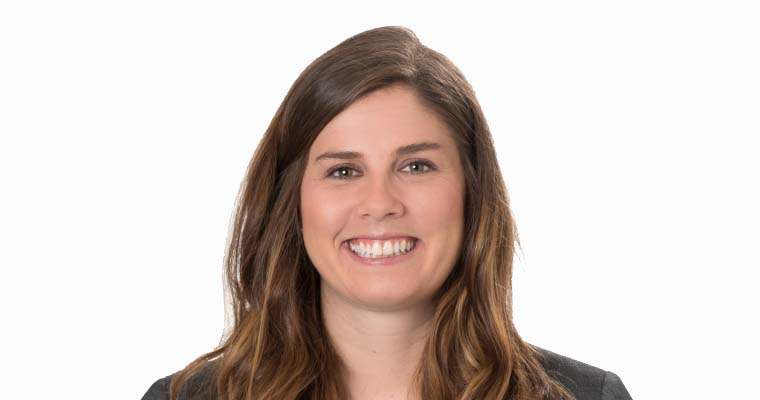New Research in the Sport Industry Advocates for Better Work-Life Balance
A new study shows the need for a better work-life balance in the sports industry to encourage a healthier work environment, prevent job burnout, and build a more diverse workforce.

Assistant Professor of Sport Leadership and Administration Allison Smith co-authored the study, “Work and Life in the Sports Industry – A Comparison of Work-Life Interface Experiences Among Athletic Employees,” with Jeff Graham, associate professor of Sport Management at the University of Tennessee Knoxville for a special work-life balance issue of the Journal of Athletic Training, the National Trainers’ Association scientific journal.
The study examined peer-reviewed journal articles between 2011 and 2020 which provided a look into the challenges that athletic trainers, coaches, athletes, and general athletic industry employees face and strategies to combat those challenges going forward. According to Smith, the sport industry is one of the few industries that demands employees always be on-call and prioritize their professional lives over their personal lives, leading to a non-existent work-life balance.
“You’re expected to work nights and weekends without any ifs, ands, or buts,” Smith said. “A coach could get a text from an athlete at midnight about an issue and they’re expected to respond.
“We know from the last two years in the pandemic, that if an individual doesn’t feel like their workplace is giving them the ability to work from home or telecommute or have time off, they’re just going to leave,” she said. “The turnover in athletics and professional sport is very high because organizations are not actually making a lot of huge strides in accommodations.”
Of the major findings from this study, Smith emphasizes the need for organizations to introduce industry-wide policy changes instead of putting ownership solely on the individual. To keep people in the workforce, organizations need to set clearer expectations for policies such as maternity and paternity leave and allow family members to attend games, which more cutting-edge organizations are doing.
“A lot of organizations are still saying, ‘no kids, no partners, and no spouses at work.’ Your work and your life need to be separate. We have found in our previous research that there’s a lot of tension with that,” she said. “When you’re a coach and you’re on call and you’re missing your kids, it’s really difficult to also be told you can’t bring your kids to a game. Why not?”
While smaller recommendations are given to individuals to help balance their personal and professional lives, it’s going to take an overall policy shift to also make sure the industry is equitable for everyone, including women and marginalized individuals who are particularly affected in ways that other aren’t, Smith said.
“For women or racialized or marginalized individuals, there are so many other factors in their lives that they’re wrestling with,” Smith said.
These factors impact the ability to work in an industry that has been predominantly led by white men. Smith, a former collegiate athlete, worked in college athletics at the beginning of her career, which gave her an inside look at what happens in the industry and made her passionate about changing the system for all individuals.
“I can’t tell you the number of women I’ve interviewed over the years that have told me ‘As soon as I start having a family, I’m just going to leave the industry,’” she said. “And I know for marginalized individuals, not just women but men as well, from different ethnic and racial backgrounds, they’re not seeing themselves at the top so I think it can be really discouraging to not see those examples and role models.”
As a professor in the College of Education and Human Development, Smith describes sport as an element of health and says the issues that teams, players, or sports organizations talk about mirror issues in the greater world.
“One of the reasons I came to UMass Boston was the mission and how we talk about trying to create an anti-racist institution that’s health promoting,” she said. “If I can create change in the sport industry, it feels like I’m also being reflective of the mission and vision of our institution. We’re lucky to be at such a diverse place with so many different people, whether that’s staff, faculty, or students.”
Smith said there’s a disconnect in the sport industry between who does the labor and who makes the decisions, which demonstrates the need for more diverse leadership at the top. Her research advocates for organizations in the sport industry to start seeing the value of a diverse workforce.
“When we have people with multiple identities and backgrounds and histories, we can have a really collaborative and innovative approach to how we run an organization,” she said. “That’s what I really want to connect; how can we get the sport industry to be similar to our mission here at UMass Boston.”
